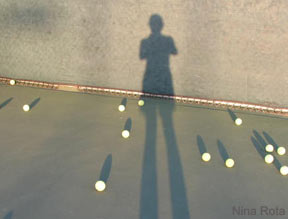 I’m just getting over the French Open and here comes Wimbledon in eight days. I thought I’d get into the mood by watching a Wimbledon final between John McEnroe and Björn Bjorg. I was around in the early 1980’s and paid close attention to tennis but I never realized that all eleven of Borg’s grand slam championships came on grass and clay. Five (straight) Wimbledon wins and six at Roland Garros. As far as I know this is unique in the history of tennis.
I’m just getting over the French Open and here comes Wimbledon in eight days. I thought I’d get into the mood by watching a Wimbledon final between John McEnroe and Björn Bjorg. I was around in the early 1980’s and paid close attention to tennis but I never realized that all eleven of Borg’s grand slam championships came on grass and clay. Five (straight) Wimbledon wins and six at Roland Garros. As far as I know this is unique in the history of tennis.
For a good reason.
You have to be willing (and able) to slog through endless twenty-five stroke rallies for five sets on powdery red clay and lots of red mud if you want to win at Roland Garros. Rafael Nadal had already won five tournaments on clay this year before he arrived in Paris and took the championship.
Wimbledon champions, on the other hand, take every opportunity possible to roll a shot deep into their opponent’s court so they can get to the net and stay there until they get an easy put away.
While I was rooting around the web looking for help in explaining such a dichotomy in Borg’s play, I came across one of the finest pieces of sports writing I’ve ever read. Tim Pears has written a profile of Borg for the British paper The Guardian that uncovers the deep conflicts you’d expect to find in the fiery competitor who transformed himself from a racket throwing “nut” into an iceberg of imperturbable calm. Pears calls on everything from Patanjali’s yoga sutras to filmmaker John Cassavetes to explain Borg’s struggle to transform his inner self to the point where he could pursue his deep passion for tennis without burning up in the process.
“Yoga”, according to the sutras, is “the ability to direct the mind exclusively towards an object and sustain focus in that direction without any distractions.” A tennis ball is as good an object as any other.
Another sutra states that “The mind can reach the state of Yoga through practice and detachment.” Focus and detachment, a good description of Borg’s on court demeanor. Win the point or lose the point, you couldn’t tell by looking at him. While you could easily find John McEnroe deep in the throes of despair over a missed shot or busy berating fans and officials with the most creative trash talk ever heard in the quiet world of tennis, across the net, there was Borg standing at the baseline idly bouncing a few balls on his tennis racket waiting for everything to blow over so he could get back to work.
Nobody bothered to taunt Borg because they knew it was a waste of time. Tweak McEnroe just a little bit and you had an afternoon of entertainment waiting for you.
McEnroe needed Borg. You didn’t see him losing it when he played a match against the unflappable Swede. What was the point? Borg presented him with a blank slate, nothing. There was nothing to provoke McEnroe so he was forced to concentrate on playing tennis.
Which is exactly what he did, sublimely, in their 1980 Wimbledon final. He fought off seven match points to win the fourth set tiebreaker 18-16 and even the match at two sets all. Anyone else in Borg’s position would have been so shaken by failing to cash in on seven match points that the fifth set would have been a routine slide into defeat. But this is Borg. He calmly walked to the baseline and fought through an 8-6 fifth set to win the match.
McEnroe needed Borg. You didn’t see him losing it when he played a match against the unflappable Swede. What was the point?
A quick look at the sports pages tells you that championship athletes who have mastered parts of themselves well enough to perform exceptionally well in competitive situations don’t necessarily make exceptional human beings. Borg had problems with drug abuse after retiring and even suffered an overdose. Conversely, bad behavior on court doesn’t necessarily make you a bad person. McEnroe was voted “Father of the Year” by the National Father’s Day council and you can see him everywhere in tennis today.
They were a fascinating contrast not in personality but in how they chose to deal with their personality. McEnroe could not control himself. Borg could control himself only too well.
There are probably a number of reason tennis isn’t as popular now as it was during the time of Borg and McEnroe. We’re desperate for a rivalry. Of course we’d love to see a show of superb tennis in a big time grand slam final. But what we really want is to see two people willing to play out their deepest passions and tortured desperate selves to the point where the only thing left is pure, sublime tennis. That is what Borg and McEnroe gave us.